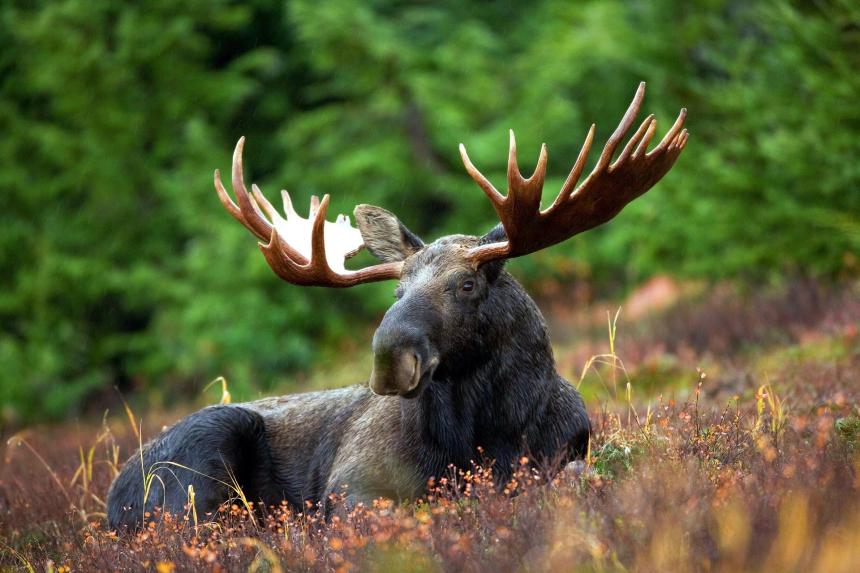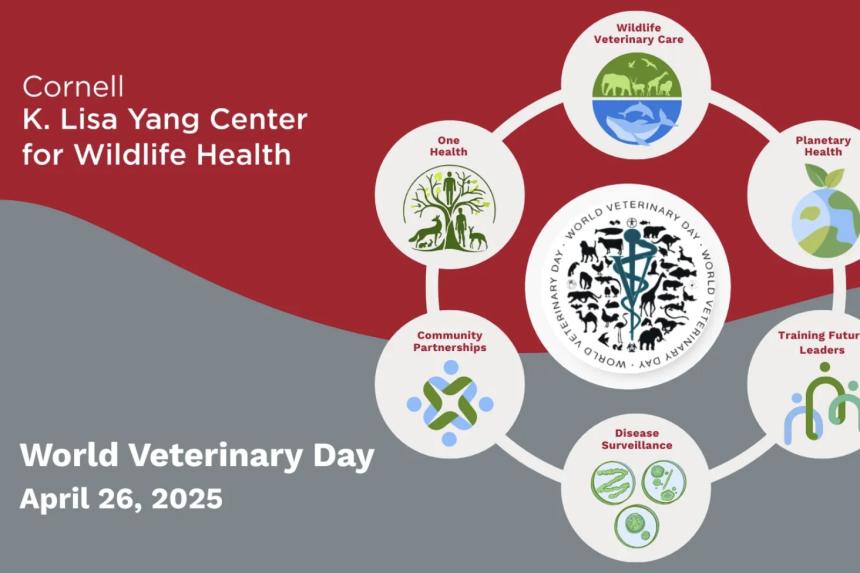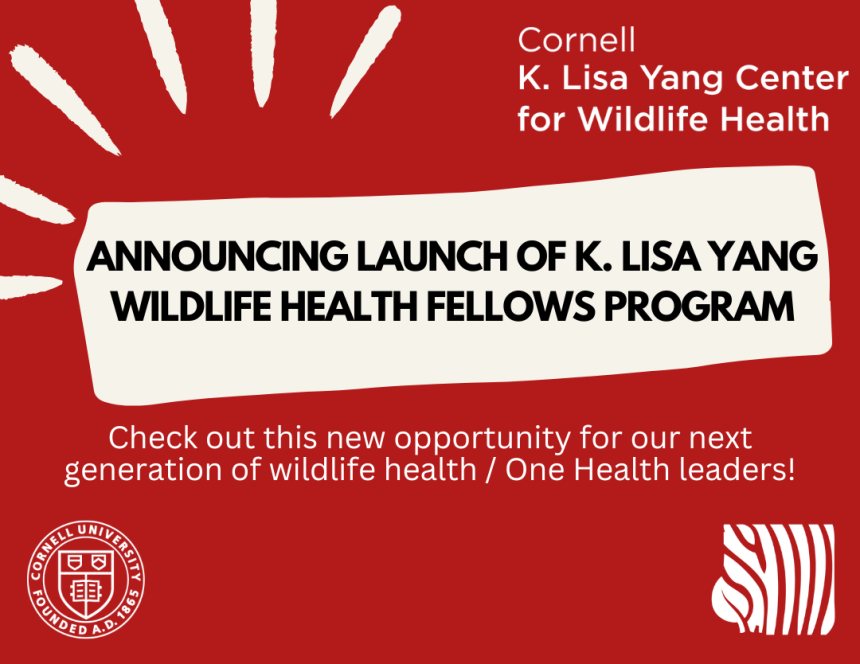In the News

September 23, 2025
Jennifer Nagashima ’09, PhD ’15, currently leads efforts that merge reproductive biology and biotechnology to protect genetic diversity and boost fertility in endangered species....

Video
July 15, 2025
The Cornell College of Veterinary Medicine hosted its second annual Symposium on Artificial Intelligence in Veterinary Medicine with a keynote by Dr. Alex Dehgan of Conservation X Labs, highlighting how AI can drive accessible, global conservation solutions.

Announcement
June 11, 2025
We are pleased to announce that our 2025-2026 call for Cornell K. Lisa Yang Postdoctoral Fellowships in Wildlife Health is now out! Applications due October 6, 2025.

April 30, 2025
On February 11-12, 2025, Dr. Pete Coppolillo, Executive Director of Working Dogs for Conservation (WD4C), was welcomed to Cornell University as a special guest speaker to discuss how dogs are helping to further conservation efforts.

April 26, 2025
On World Veterinary Day this year, we are celebrating Cornell's wildlife and ecosystem health teams and their tireless efforts to build a healthier future for wildlife, people, and planet.

April 09, 2025
The Fossil Rim Wildlife Center plays an important role in efforts to save wildlife species from extinction. I was fortunate enough to travel to Glen Rose, Texas for a preceptorship to experience these conservation efforts firsthand....

August 27, 2024
New York state lawmakers announced $19.5 million in capital funding to the New York State Veterinary Diagnostic Laboratory to expand the Animal Health Diagnostic Center at Cornell.

July 26, 2024
In October 2023, I had the opportunity to travel to Tasmania, the island state of Australia, to learn more about one of its most iconic species, the Tasmanian devil. Tasmanian devils are the world’s largest carnivorous marsupials, and they play a key ecological role as scavengers and in suppressing populations of invasive species....

Blog
July 19, 2024
As an extern at the Cincinnati Zoo and Botanical Garden’s Center for Conservation and Research of Endangered Wildlife, Cornell DVM student Natalie Smith learned how reproductive medicine can help conservation efforts for big cats.

Announcement
May 15, 2024
Check out this new opportunity for our next generation of wildlife health / One Health leaders!
